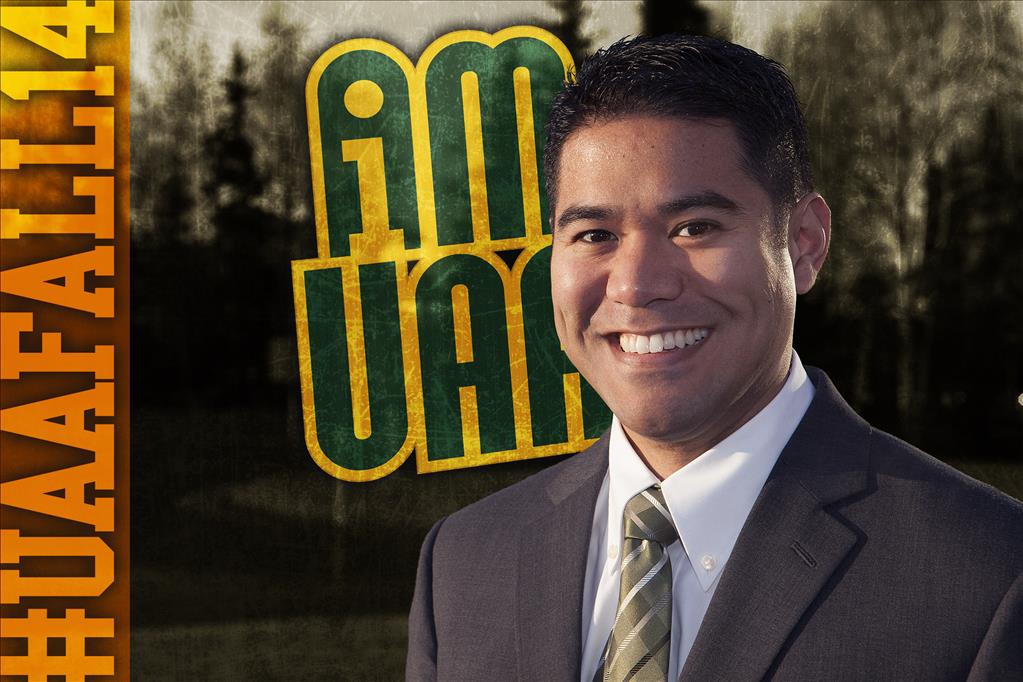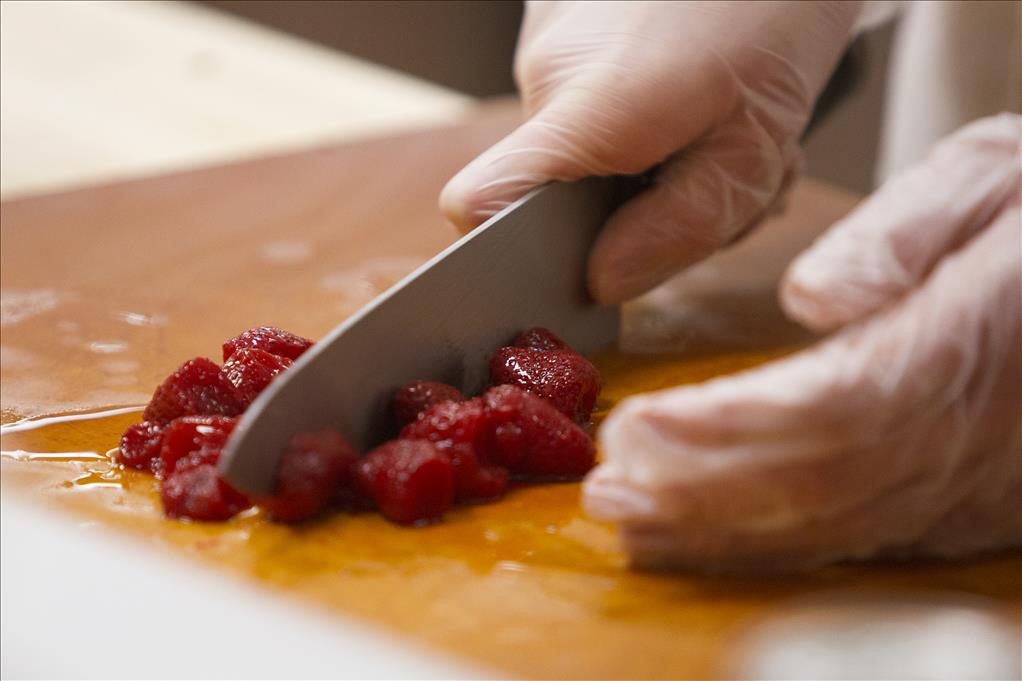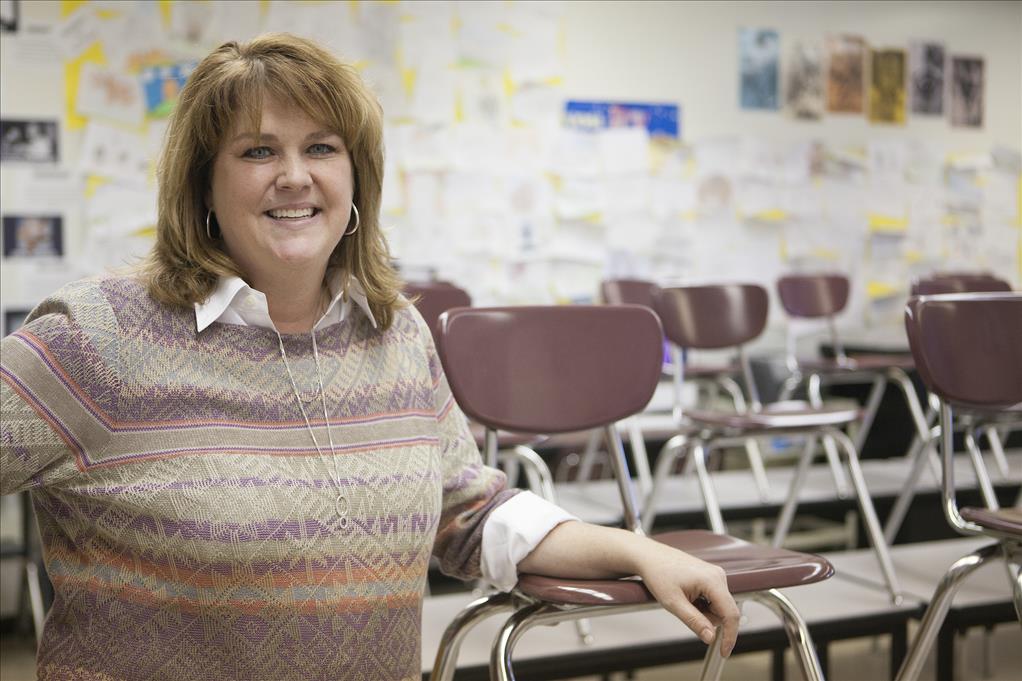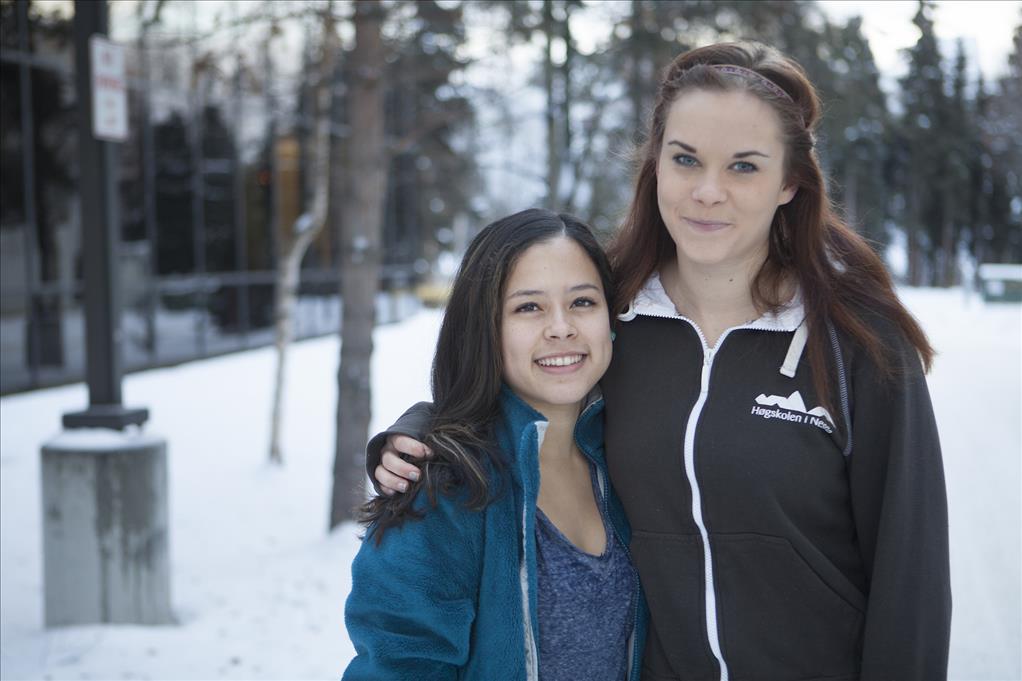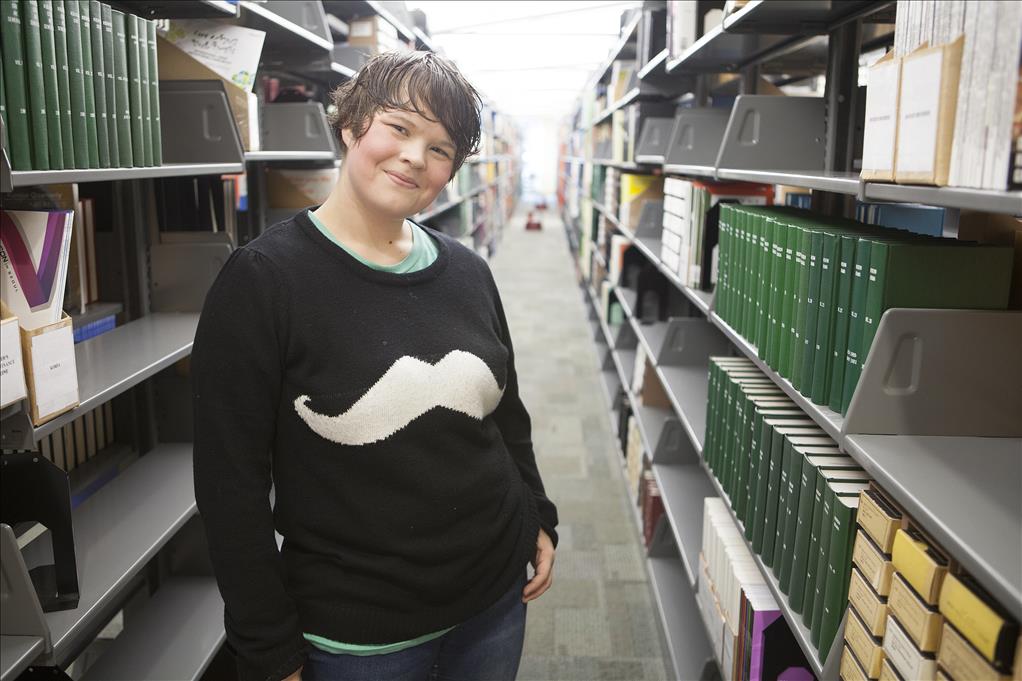What do reality TV, Nora Zeale Hurston and 'The Help' have in common?
by Kathleen McCoy |
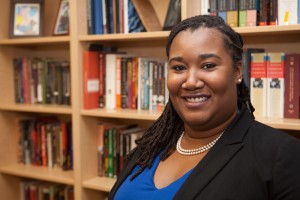
Jervette R. Ward, an English professor here, is editing a book to be released in 2015 called, "The Real Scandal: Portrayals of Black Women on Reality TV." Her ongoing interests include Harlem Renaissance writer Nora Zeale Hurston. (Photo by Philip Hall/University of Alaska Anchorage)
What do reality TV, Nora Zeale Hurston and 'The Help' have in common? On the surface, not much. But if you're Jervette R. Ward, a recently arrived English professor at UAA, each is an avenue into a topic she cares deeply about-the black female experience.
Last week she delivered a bookstore talk on controversial roles written for black women on reality TV, subject of her new book out next year from Rutgers University Press. This Tuesday, she's on a panel discussing the aftermath of shootings and civil unrest in Ferguson, Mo., organized by the campus Black Student Union.
Ward is far from her Southern roots. "Honestly, I had no intention of applying at UAA," she said. She attributes landing here to a talk she had with her father, a minister.
Ward was trying hard to get back home to the south from Boston, where she'd been teaching for a few years. She was discussing job prospects with him over the phone one day. Where are you applying, he asked. Everywhere, she answered. Well, not everywhere.
"I didn't apply to Alaska. I said that as a joke," she recalled. And he challenged her. "Why not-if you 're applying everywhere." Ward said she rolled her eyes when she dutifully answered, "OK..." and added it to her list of potential schools. All the others were in the south.
But Alaska's offer turned her head. She accepted because beyond teaching in the areas she loves, it included time for research and the chance to mentor graduate students, an important rung on the academic ladder. They'll also help with interviews and transcription for her next book, telling the true stories of surviving black maids from Jackson, Mississippi, first introduced as characters in Kathryn Stockett's novel. Ward's account will be titled, "More Than Just The Help."
Another bargaining chip was UAA's tuition waivers and the chance for her husband, Kenneth Ellis, to work on his master's in logistics. So they and their 11-year-old daughter embraced the chance for "the great adventure" in Alaska.
Ward has another word for that decision, though: navigation.
As an African American woman, she said she has spent a lifetime navigating situations where she was the only one. She tells an amusing story of walking past a construction site near the Czech university where she was studying and teaching. "Work stopped. Completely stopped. All the workmen, they just quit and stared as I walked by, because"-she laughs easily- "there aren't all that many other black women in Pilsen."
Here in Alaska, she's navigating the hierarchy of academia, finding the time to do the research she wants and needs to succeed. Besides the upcoming book inspired by maids in the south, Ward wants to return to an earlier passion, the Harlem Renaissance writer Nora Zeale Hurston. Already she's contributed an essay and a book chapter focusing on the American folklorist and writer.
Ward is especially intrigued by Hurston's last book, "Seraph on the Suwanee," about which less has been written. It's also Hurston's only book to include white characters.
As serious as her scholarly interests are, Ward is not stuffy. Raised mostly in Mississippi as the oldest of five siblings, she's gregarious and her laugh is infectious. Giving a party? Put her on the list. She loves cooking and travel and magazines. She's passionate about Pinterest and home decorating. She can spend a weekend rearranging three baskets in her entryway to get them just right.
Her dissertation advisor at the University of Memphis used to joke about her obsession: "If this Ph.D. thing doesn't work out...you can always decorate houses, starting with mine."
But the doctorate in English worked out just fine. And now, Ward finds herself standing in front of a class comprised mostly of white Alaskans. And once again, for many of them, she is the first black woman professor they've encountered.
The experience has been a good one, she says, a meaningful way to talk about some things that don't get attention. She describes a class in which she and her students spent the entire semester looking at the autobiographies of black women.
"The class was 50 percent white males," she said. "I had them journaling during the whole process and one of them wrote, 'I never thought about what the black female experience was...it never even crossed my mind before."
To Ward, that was golden. "It matters for us to think about people's experiences that may not necessarily be our own, to understand them and respect them. I'm hoping to be able to bring a much more multicultural air to the conversation."
A version of this story by Kathleen McCoy appeared in the Alaska Dispatch News on Sunday, Oct. 19, 2014.
 "What do reality TV, Nora Zeale Hurston and 'The Help' have in common?" is licensed under a Creative Commons Attribution-NonCommercial 4.0 International License.
"What do reality TV, Nora Zeale Hurston and 'The Help' have in common?" is licensed under a Creative Commons Attribution-NonCommercial 4.0 International License.










